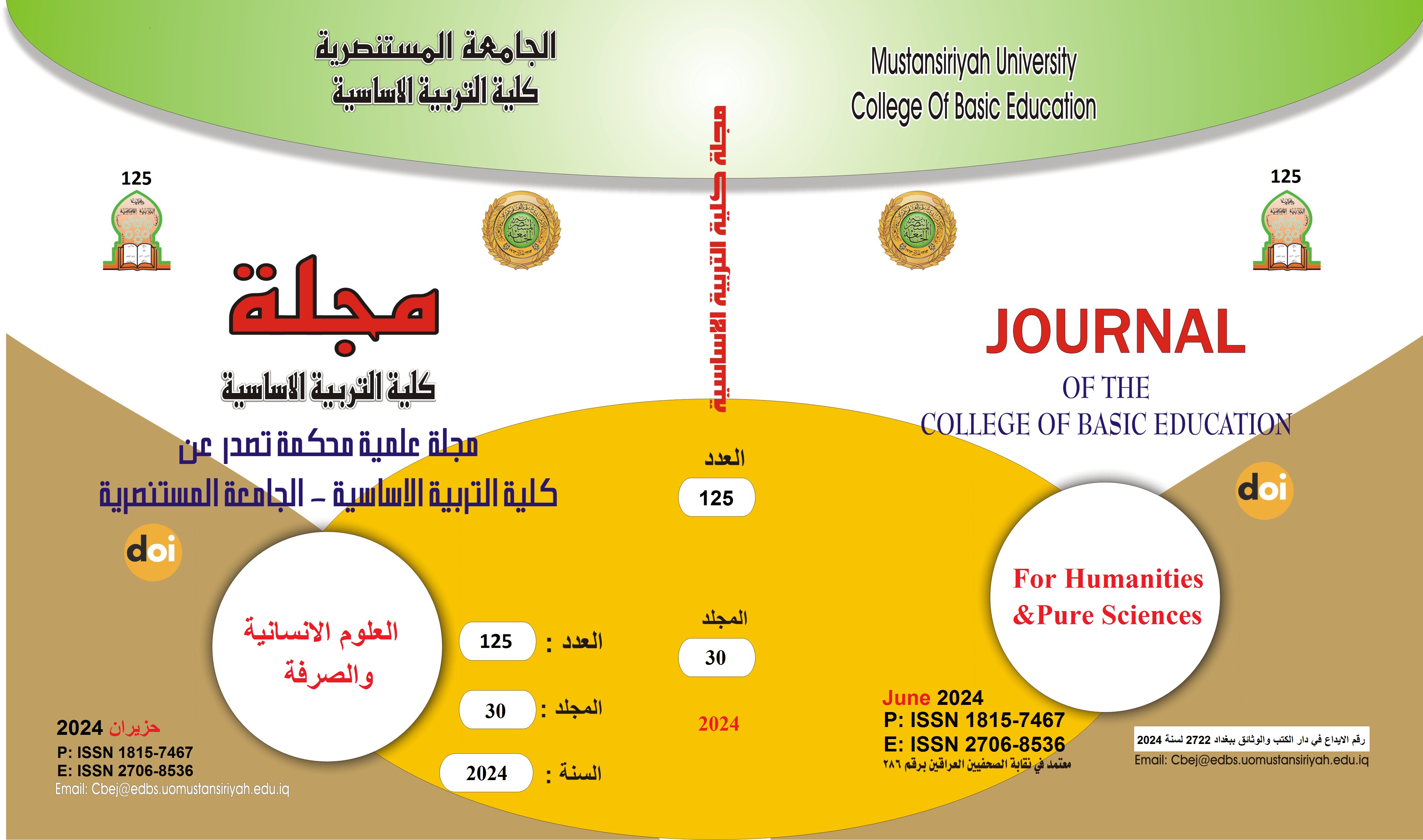Feeling of psychological loneliness and its relationship to life skills among students at the University of Baghdad
Main Article Content
Abstract
Introduction and research problem: There are many problems that people suffer from, especially university students, as they suffer from many disorders, including the feeling of unpleasant psychological loneliness that turns into sadness, and the individual’s feeling of frustration and depression to the point that may push him to commit suicide. Many studies and research have confirmed that there is a close connection and a significant relationship between the feeling of loneliness and the rates of actual suicide or the feeling of it. Since students, like other people, need some life skills, because of their importance in various aspects of their lives. It contributes to alleviating the feeling of psychological loneliness. Therefore, life skills have multiplied according to the needs of advanced human society, and the importance of research is evident in the lack of interest in life skills in previous research and studies at the country level. The current research addresses several variables in order to give a clear picture of the importance of life skills to alleviate the feeling of psychological loneliness for students, as they have gone through periods It is difficult to lose one or both parents, which exposes them to an increased feeling of psychological loneliness. Therefore, the problem of the research lies in the students’ lack of interaction with life skills, which prevents them from feeling isolated and hopeless, which leads them to feel lonely. The two researchers worked to focus on the appropriate life skills for university students, and through reviewing and reading previous sources and research, I noticed the necessity of finding life skills for the specificity of their health and psychological condition. And social to alleviate the state of psychological loneliness. The aim of the research is to identify the degree of psychological loneliness and life skills among the research sample, to identify the relationship between psychological loneliness and life skills among the research sample, and to identify the differences between males and females in the degree of psychological loneliness and life skills among the research sample. As for its hypotheses, there is a significant correlation between psychological loneliness and life skills in the research sample, and there are significant differences between psychological loneliness and life skills in the research sample. As for the human domain, a sample of male and female students at the University of Baghdad (200), the temporal domain is the period from and the spatial domain: the University of Baghdad 19/2/2023 to 27/2/2023 Research methodology and field procedures: The two researchers used the descriptive approach using survey, comparative, and correlational methods. The sample was selected randomly from students at the University of Baghdad, College of Physical Education and Sports Sciences, and College of Mass Communication, fourth stage (males, females). The sample number reached (200) male and female students, and included the steps for implementing the research. Distributing the psychological loneliness scale and the life skills scale, then collecting, tabulating, and processing the data statistically.Presentation and interpretation of results: This section includes the presentation and interpretation of results in tables
Conclusion: The emergence of significant differences in the degree and level of psychological loneliness for the research sample, and the emergence of significant differences in the degree of psychological loneliness and life skills for the research sample. The emergence of statistically significant differences for life skills attributed to female students in the fourth stage, and the emergence of statistically significant differences for life skills for the gender variable, and the differences were in favor of females.- Recommendations: It is necessary to work on early detection of symptoms of disorders among students, because studies confirm that neglecting the process of early diagnosis in this age group leads to suicide, and continuous follow-up of students, and work to understand the student’s feelings and needs, problems and difficulties that he suffers from, and help him manage His life may be beset by difficulties at all levels. And work to conduct more studies related to this stage, and reconsider the student’s knowledge of all life skills that will alleviate the student’s sadness, as well as depressive symptoms and psychological and social disorders, and the freedom to strive in thought, science, and religion. As well as holding dialogue and interactive activities and meetings to transfer their experiences and capabilities.
Article Details

This work is licensed under a Creative Commons Attribution-ShareAlike 4.0 International License.
